Fiji
Welcome to Fiji
Fiji is located in Melanesia, roughly 1,770 kilometers north of New Zealand and about 4,450 kilometers southwest of Honolulu. The country’s main islands, Viti Levu and Vanua Levu, are surrounded by hundreds of smaller islands, each boasting unique landscapes and attractions. The capital city, Suva, sits on Viti Levu and offers a blend of colonial architecture, museums, and bustling markets, while Nadi serves as the primary international gateway with its airport and proximity to natural hot springs and archaeological sites. The islands are famed for their pristine coral reefs, making Fiji a top destination for snorkeling and scuba diving. The Great Astrolabe Reef, one of the world’s largest barrier reefs, is a highlight for underwater explorers, featuring vibrant coral gardens and marine life including reef sharks, manta rays, and sea turtles. On land, visitors can hike through dense rainforests, explore waterfalls, and discover wildlife on islands like Kadavu and Taveuni, the latter known as the “Garden Island” for its lush vegetation and birdwatching opportunities. Fiji’s culture is a rich tapestry woven from Melanesian, Polynesian, and Indian influences. The Fijian people are known for their friendliness and hospitality, often greeting visitors with broad smiles and traditional ceremonies such as the kava ritual. Festivals, local markets, and village visits provide authentic insights into the island way of life.
Why Visit Fiji?
1.
Natural Beauty and Adventure: Fiji’s diverse landscapes—from white sandy beaches and crystal-clear lagoons to volcanic peaks and tropical forests—offer endless opportunities for outdoor activities. Snorkeling with dolphins, surfing world-class breaks, kayaking through mangroves, and hiking scenic trails are just a few ways to connect with nature.
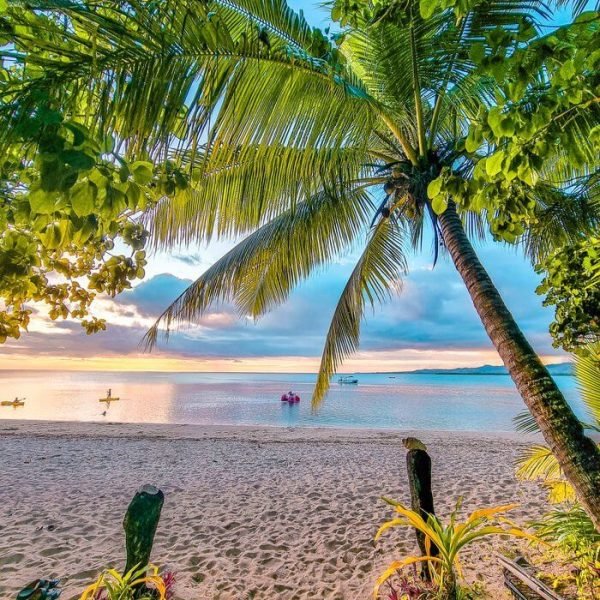
2.
Warm Culture and Relaxation: Beyond its natural wonders, Fiji’s welcoming people and vibrant traditions create a unique cultural experience. Visitors can enjoy traditional Fijian feasts, music, and dance, or simply unwind in luxury resorts and beachfront bungalows that blend comfort with stunning surroundings.
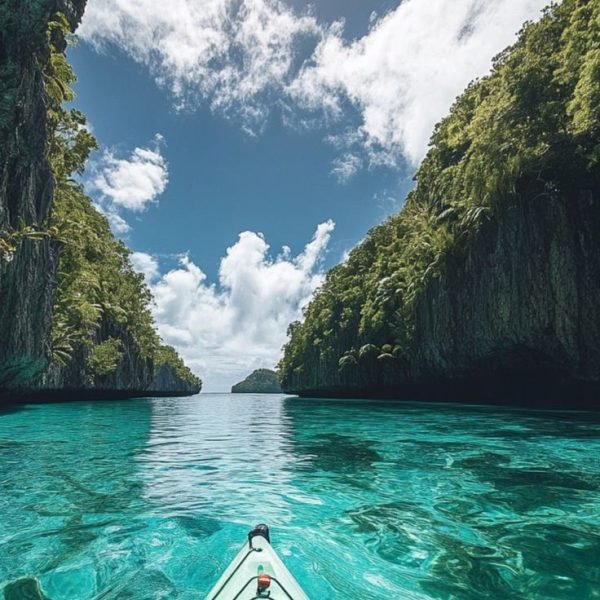
Planning Your Trip
Visa Information
Most visitors to Fiji do not require a visa for stays up to four months, including citizens from countries such as the United States, Canada, Australia, New Zealand, and the United Kingdom. Travelers should have a valid passport, return or onward ticket, and proof of sufficient funds for their stay. It is advisable to check the latest entry requirements before travel, as policies can change.
Best Time to Visit
The ideal time to visit Fiji is during its cooler, drier months from May to September. During this period, temperatures are mild, generally in the 70s Fahrenheit (around 21-26°C), and rainfall is less frequent, making it perfect for beach activities and outdoor exploration. The wet season, from November to April, brings higher humidity and occasional tropical storms, but it can also be a good time for budget travelers due to lower prices and fewer tourists.
Getting To and Around
Getting to Fiji
Nadi International Airport on Viti Levu is the main entry point for international travelers. It is well connected to Australia and New Zealand with frequent flights, and visitors from North America or Europe typically transit through hubs like Honolulu or Los Angeles. Once in Fiji, domestic flights and ferries connect the various islands, enabling easy island hopping.
Getting Around
- By Air: Domestic airlines operate regular flights between major islands, which is the fastest way to travel across the archipelago.
- By Ferry: Ferries and boats link many islands and coastal towns, offering scenic and affordable transport options.
- By Road: On the larger islands, rental cars and taxis are available. Roads can be narrow and winding, so cautious driving is recommended.
- Local Transport: Buses and minibuses serve popular routes, especially around major towns and resorts.
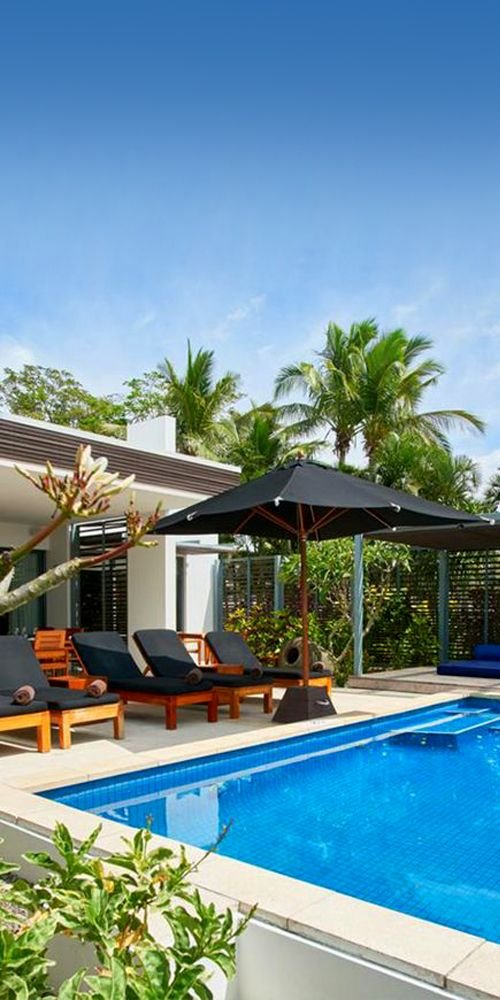
Accommodation
Fiji offers a wide spectrum of accommodation options catering to every type of traveler, from luxury seekers and honeymooners to budget backpackers and families. The diversity and quality of places to stay reflect the islands’ natural beauty and hospitality, ensuring your comfort while immersing you in the tropical paradise.
Luxury Resorts and Overwater Bungalows
For those seeking an indulgent escape, Fiji boasts some of the world’s most exquisite resorts. The Fiji Marriott Resort Momi Bay, for example, features elegant land-based rooms and stunning overwater bungalows that offer unparalleled views of tranquil lagoons. These accommodations are designed with spacious layouts, premium amenities, and a blend of modern comfort and traditional Fijian style, perfect for romantic getaways or family vacations. Many of these resorts include multiple pools, award-winning spas, fine dining, and activities such as snorkeling and paddleboarding right at your doorstep.
Similarly, the InterContinental Fiji Golf Resort & Spa on Natadola Beach combines luxury with local charm, offering rooms that reflect a traditional Fijian village layout, private outdoor living spaces, and breathtaking ocean or garden views. Guests can enjoy championship golf, spa treatments, and world-class dining, all set within 35 acres of lush tropical gardens.
Mid-Range and Family-Friendly Options
The Mamanuca and Yasawa Islands are popular for their range of mid-range resorts and family-friendly accommodations. Plantation Island Resort is a standout choice, offering beachfront bures and garden rooms that cater to families, couples, and solo travelers alike. The resort features multiple swimming pools, a kids’ club, and a variety of water sports, making it a lively and safe environment for all ages. The friendly staff and welcoming atmosphere make it feel like a home away from home.
In Nadi and along the Coral Coast, travelers can find a mix of mid-range hotels and resorts that balance comfort and affordability. Denarau Island near Nadi is known for its luxury resorts, but also offers more accessible accommodations with easy access to beaches, golf courses, and shopping.
Budget and Backpacker Stays
For budget-conscious travelers, Fiji has plenty of hostels, guesthouses, and budget resorts, especially on the main islands and popular backpacker routes. In Suva and Nadi, you can find affordable apartments and hostels with basic amenities, often including kitchen facilities and laundry services. These options provide a great way to experience local life and meet fellow travelers without breaking the bank.
On islands like Taveuni and Vanua Levu, budget travelers can stay in cottages or holiday homes, often right on the beachfront, allowing for a more rustic and immersive experience. While options are more limited in these areas, they offer a peaceful retreat surrounded by nature.
Unique Stays and Private Villas
For those wanting something different, Fiji also offers private island resorts, eco-lodges, and exclusive villas. These accommodations often provide personalized service, privacy, and direct access to unspoiled natural surroundings. Many luxury resorts offer private villas with pools and dedicated staff, ideal for honeymooners or travelers seeking seclusion.
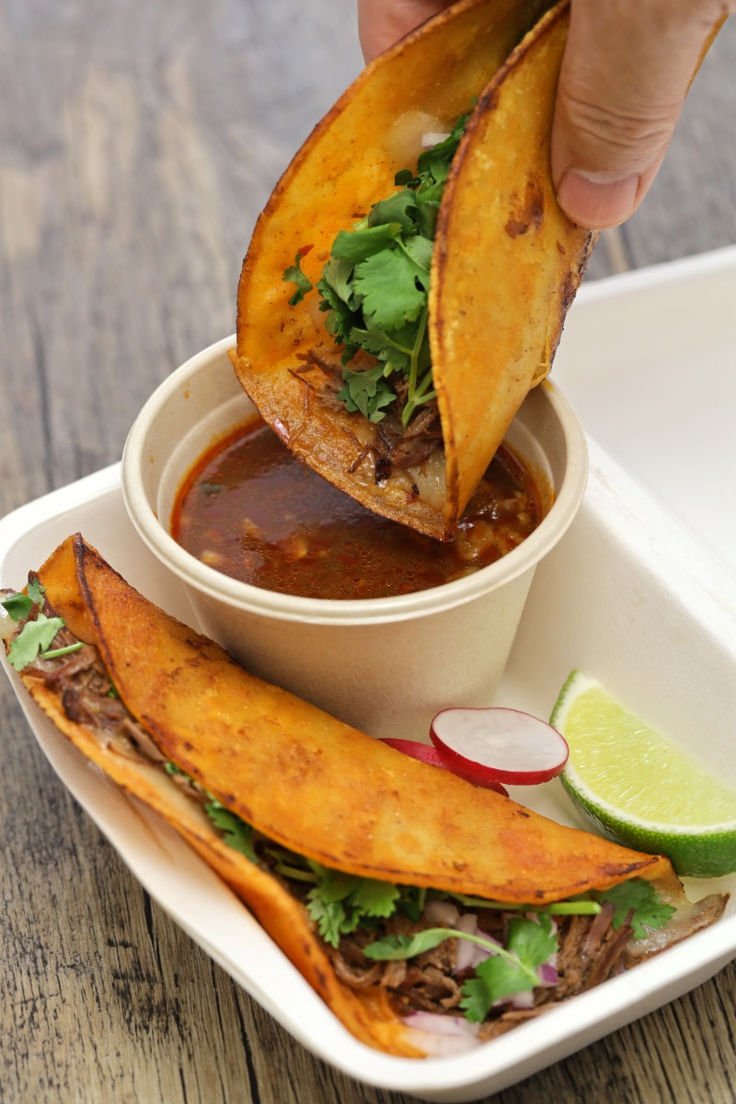
Food and Drink
Fiji’s cuisine is a vibrant reflection of its multicultural heritage, blending indigenous Fijian flavors with Indian, Chinese, and Western influences. The food scene ranges from traditional village feasts to sophisticated dining experiences, ensuring a delicious journey for every palate.
Traditional Fijian Cuisine
At the heart of Fijian food culture is the lovo, a traditional earth oven feast where food is wrapped in banana leaves and cooked underground over hot stones. This method imparts a smoky, rich flavor to meats like pork, chicken, and fish, often accompanied by root vegetables such as cassava, taro, and sweet potatoes.
Another staple is kokoda, a refreshing dish of raw fish marinated in coconut cream, lime juice, onions, and chili peppers, similar to ceviche. It’s a must-try appetizer that captures the essence of island freshness.
Fijians also enjoy rourou (taro leaves cooked in coconut milk), palusami (taro leaves with coconut cream and onions), and a variety of seafood prepared simply to highlight its natural flavors.
Indian and Indo-Fijian Influences
Due to a significant Indo-Fijian population, Indian cuisine is deeply woven into Fiji’s food culture. Curries, roti (flatbread), dhal (lentils), and samosas are widely available and often adapted with local ingredients. Indo-Fijian dishes tend to be rich in spices and flavors, offering a delicious contrast to the milder traditional Fijian fare.
Dining Experiences
In resort areas and cities like Nadi and Suva, you’ll find a range of dining options from casual beachfront cafes to upscale restaurants. Many resorts offer international menus alongside local specialties, with fresh seafood being a highlight. Expect dishes featuring mahi-mahi, snapper, lobster, and prawns, often served with tropical fruits and vegetables.
Street food and market stalls provide an authentic taste of local life, where you can sample snacks like fried cassava, banana chips, and chicken kebabs. Don’t miss the opportunity to try freshly made coconut water or tropical fruit juices such as pineapple, mango, and papaya.
Drinks and Nightlife
Fiji’s tropical climate makes refreshing drinks a must. Coconut water straight from the shell is a natural favorite, while cocktails featuring local rums, tropical fruits, and fresh herbs are popular at resorts and bars. The Fiji Bitter beer is a local brew widely enjoyed by visitors and residents alike.
For nightlife, many resorts host themed nights with traditional music and dance performances, while towns like Nadi and Suva offer bars and clubs where you can mingle with locals and fellow travelers.

Must-See Attractions
- Sabeto Hot Springs and Mud Pool
Nestled in the Sabeto Valley near Nadi, these natural thermal springs and mud pools provide a unique and relaxing experience. Visitors can soak in warm mineral-rich waters and enjoy therapeutic mud baths surrounded by tropical rainforest. It’s a perfect way to unwind and rejuvenate while connecting with nature.
- Garden of the Sleeping Giant
Located at the foothills of the Sleeping Giant mountain near Nadi, this botanical garden is home to over 2,000 varieties of orchids and tropical plants. Originally a private collection by actor Raymond Burr, it’s now a peaceful haven for horticulture enthusiasts and nature lovers alike. Strolling along wooden boardwalks past lily ponds and vibrant flora offers a serene break from the beaches.
- Natadola Beach
One of Fiji’s most famous white-sand beaches, Natadola boasts crystal-clear waters ideal for swimming and snorkeling. The beach is known for its stunning sunsets and lively local vendors, making it a great spot to soak up the island vibe. While swimming can be challenging due to strong tides, the natural beauty is undeniable.
- Kula Eco Park
Perfect for families and wildlife enthusiasts, Kula Eco Park on the Coral Coast is Fiji’s only wildlife sanctuary. It offers a chance to see native animals such as the endangered Fijian iguana, the national bird—the Kula—and various tropical birds and reptiles. The park also features interactive experiences like the junior ranger program and adrenaline activities such as zip-lining and jungle water slides.
- Fiji Museum, Suva
For a deep dive into Fiji’s rich history and culture, the Fiji Museum in the capital city Suva is a must-visit. Housed within Thurston Gardens, it showcases over 3,000 artifacts including traditional canoes, ancient pottery, and intriguing relics like wooden cannibalism forks. The museum offers a fascinating look at over 3,700 years of Fijian heritage and indigenous life.
- Bouma National Heritage Park and Tavoro Waterfalls
Located on Taveuni Island, known as the “Garden Island,” this park features lush rainforests and a series of three spectacular waterfalls. Hiking through the park’s trails leads to natural swimming pools beneath the falls, providing refreshing spots to cool off. The park is a biodiversity hotspot with abundant birdlife and tropical plants.
- Sigatoka Sand Dunes National Park
This UNESCO World Heritage site on Viti Levu’s southwest coast is a fascinating landscape of towering sand dunes, forests, and meadows. The dunes, some reaching 60 meters high, are remnants of an ancient culture dating back 2,600 years. Visitors can hike the dunes and enjoy guided tours that explore archaeological sites and stunning coastal views.
- Sri Siva Subramaniya Temple
Located in Nadi, this is the largest Hindu temple in the Southern Hemisphere and a vibrant symbol of Fiji’s Indian heritage. The temple’s intricate architecture, colorful carvings, and serene atmosphere make it a captivating cultural landmark. Visitors can admire the craftsmanship and learn about the religious traditions of Fiji’s Indo-Fijian community.
- The Mamanuca and Yasawa Islands
These island groups are renowned for their idyllic beaches, crystal-clear waters, and excellent snorkeling and diving spots. The islands offer a mix of luxury resorts and rustic beach huts, perfect for island hopping, swimming with manta rays, or simply relaxing in paradise. Monuriki Island, part of the Mamanucas, is famous for its vibrant coral reefs and was the filming location for the movie “Castaway”.
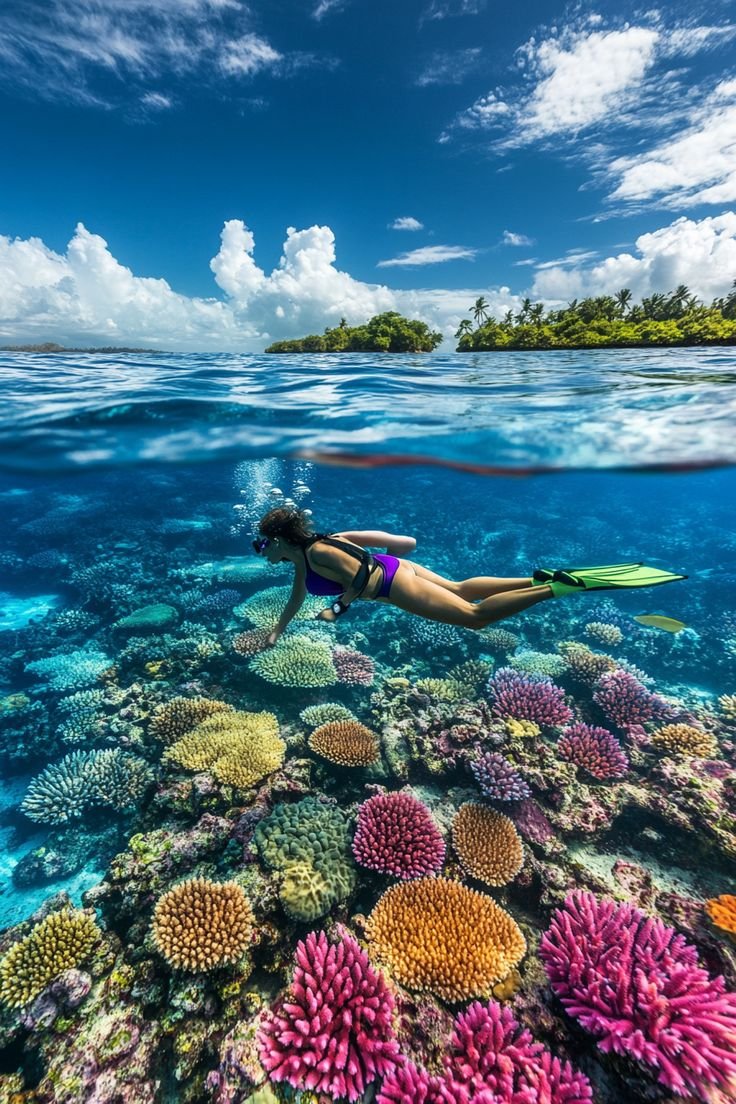
Must-Do Activities
- Snorkeling and Scuba Diving
Fiji is often called the “Soft Coral Capital of the World,” and its underwater world is a spectacular playground for snorkelers and divers. The Great Astrolabe Reef, Beqa Lagoon, and the reefs around the Mamanuca and Yasawa Islands offer vibrant coral gardens teeming with tropical fish, turtles, reef sharks, and manta rays. Diving excursions and snorkeling tours are widely available and cater to all skill levels.
- Island Hopping
Exploring Fiji’s many islands is a highlight for visitors. Island hopping tours allow you to discover secluded beaches, hidden coves, and traditional villages. You can take boat trips from Denarau Marina or Nadi to the Mamanuca and Yasawa Islands, where you can swim, snorkel, or simply relax on pristine shores. Helicopter tours are also an option for a breathtaking aerial view of the archipelago.
- Cultural Experiences and Village Visits
Immerse yourself in Fijian culture by visiting local villages where traditional ceremonies, crafts, and cuisine are shared. Many tours include kava ceremonies, traditional dances, and feasts, offering insight into the islanders’ way of life. The Fiji Culture Village near Nadi is a popular spot to experience these authentic cultural encounters.
- Hiking and Nature Walks
Fiji’s diverse landscapes provide excellent hiking opportunities. Trails in Bouma National Heritage Park, Colo-I-Suva Forest Park near Suva, and the Sigatoka Sand Dunes offer scenic walks through rainforests, waterfalls, and coastal dunes. The Lavena Coastal Walk on Taveuni Island is another beautiful trail, combining jungle paths with stunning ocean views.
- Surfing
Fiji is a world-class surfing destination, especially on the islands of Tavarua and Cloudbreak near the Mamanucas. These breaks attract surfers from around the globe with their powerful waves and warm waters. Beginners can find gentler spots on the Coral Coast and around Viti Levu, where surf schools offer lessons and equipment rentals.
- Whale Watching and Dolphin Cruises
From July to October, humpback whales migrate through Fiji’s waters, offering spectacular whale-watching opportunities. Several operators run boat tours that include whale and dolphin spotting, often combined with snorkeling and beach barbecues for a full-day adventure.
- Ziplining and Adventure Parks
For adrenaline seekers, Kula Eco Park and other adventure centers provide ziplining, jungle water slides, and canopy tours. These activities combine thrills with the chance to see Fiji’s unique wildlife and lush landscapes from a different perspective.
- Fishing and Water Sports
Fiji’s waters are rich with game fish such as marlin, tuna, and mahi-mahi, making it a premier destination for sport fishing. Many resorts and tour operators offer fishing charters. Additionally, kayaking, paddleboarding, and jet skiing are popular ways to explore Fiji’s lagoons and coastline.
- Relaxing on the Beach
Of course, no trip to Fiji would be complete without ample time spent on its stunning beaches. Whether it’s the powdery sands of Natadola, the tranquil shores of the Yasawas, or the lively beaches near resorts, soaking up the sun and swimming in warm, clear waters is a quintessential Fijian experience.
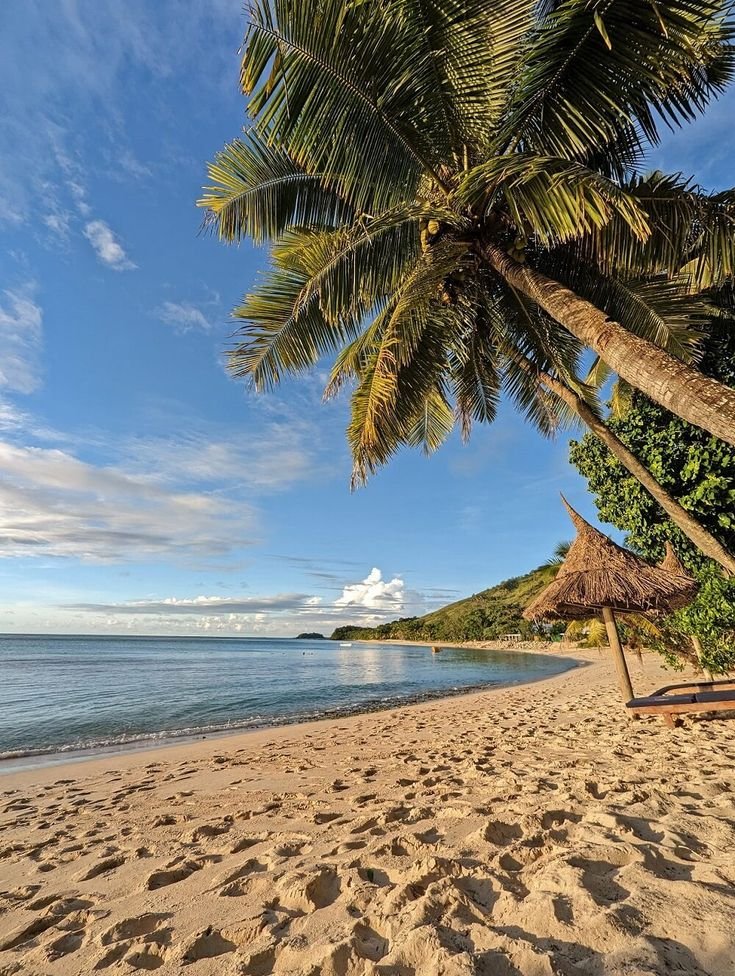
Travel Tips
Traveling to Fiji in 2025 promises an unforgettable experience filled with stunning natural beauty, warm hospitality, and vibrant culture. To make the most of your trip, it’s essential to be well-prepared with practical travel tips covering safety advice, local customs, and language basics. Here’s a comprehensive guide to help you navigate Fiji smoothly and respectfully.
Safety Advice
While Fiji is generally considered a safe destination for tourists, exercising common sense and taking precautions can ensure a worry-free visit.
- Petty Crime Awareness: Petty crimes such as theft from hotel rooms, purse snatching, and bag theft occur, especially in urban areas like Suva and Nadi. Always keep your valuables secure and avoid displaying signs of wealth such as expensive jewelry or large amounts of cash. Use hotel safes when available and be cautious when withdrawing money from ATMs or exchanging currency.
- Avoid Walking Alone at Night: It’s advisable not to walk alone after dark, particularly in less crowded or poorly lit areas. Use registered taxis or transportation services with yellow license plates, which comply with local regulations. Avoid sharing taxis with strangers for safety reasons.
- Be Vigilant with Alcohol: There have been reports of methanol-adulterated alcohol poisoning in southern Fiji. Drink only from reputable bars and resorts, and seek medical help immediately if you feel unwell after consuming alcohol.
- Road Safety: Road conditions vary widely. While roads in major cities are generally adequate, rural roads can be poorly maintained, with hazards such as pedestrians, animals, and lack of signage. Avoid driving at night and stick to main roads. If you plan to drive, ensure you have an International Driving Permit, carry your home country license, and be familiar with local traffic laws. Always wear seatbelts, sit in the back seat when possible, and avoid using mobile phones while driving.
- Public Transport: Use only licensed minibuses and taxis. Unlicensed vehicles may not be insured, posing a risk in case of accidents. For inter-island travel, choose reputable ferry or boat operators and check weather conditions before departure.
- Hiking and Outdoor Activities: If you plan to hike or explore remote areas, never go alone. Hire experienced guides from reputable companies, carry sufficient supplies, and inform someone of your itinerary. Be aware of weather changes and avoid venturing off marked trails. Purchase travel insurance that covers medical evacuation and helicopter rescue if possible.
- Swimming and Water Safety: Riptides and strong currents are common around reefs and river mouths. Always seek local advice before swimming or participating in water sports. Use reputable companies for activities like diving, snorkeling, and boating, ensuring their equipment meets safety standards.
- Health Precautions: Protect yourself from insect bites by wearing long sleeves and pants, using insect repellent, and sleeping in screened or air-conditioned rooms. Stay hydrated, use sunscreen, and avoid excessive sun exposure during peak hours. Carry a basic first aid kit and consider vaccinations or medications recommended by your health provider before traveling.
Local Customs
Fiji’s culture is warm and welcoming, but understanding local customs will enrich your experience and show respect to the Fijian people.
- Greeting and Respect: A common greeting is a friendly “Bula!” meaning “hello” or “welcome.” Fijians are known for their hospitality and friendliness, so reciprocate with a smile and polite demeanor. When visiting villages, it’s customary to remove your shoes before entering homes or certain communal areas.
- Dress Code: While beachwear is acceptable on the coast and resorts, dress modestly when visiting villages, towns, or religious sites. For women, covering shoulders and knees is respectful, and men should avoid going shirtless outside beach areas.
- Kava Ceremony: Participating in a traditional kava ceremony is a unique cultural experience. Kava, a drink made from the root of the yaqona plant, is shared in a communal setting with specific rituals. Accept the drink respectfully and follow the lead of your hosts.
- Photography: Always ask permission before photographing people, especially in villages or during cultural ceremonies. Some sites may restrict photography to protect cultural sensitivities.
- Tipping: Tipping is not mandatory but appreciated in restaurants, hotels, and for tour guides. A 10% tip is customary if service is good.
- Environmental Respect: Fiji’s natural environment is precious. Avoid littering, respect marine life by not touching coral reefs, and follow guidelines when visiting protected areas.
Drug and Alcohol Laws: Fiji has strict laws against illegal drugs and prostitution, with severe penalties. Avoid any involvement in such activities.
Language Basics
Fiji is a multilingual country, with English, Fijian, and Hindi as official languages. English is widely spoken, especially in tourist areas, but learning a few local phrases can enhance your interactions.
- Common Fijian Phrases:
- Bula! – Hello / Welcome
- Vinaka – Thank you
- Moce – Goodbye
- Io – Yes
- Sega – No
- Yadra – Good morning
- Vakacava tiko? – How are you?
- Communication: Most signs, menus, and official information are in English, making navigation straightforward. However, showing interest in the local language is appreciated and can open doors to deeper cultural connections.
Final Tips for a Smooth Journey
Traveling to Fiji in 2025 offers a rich blend of natural beauty and cultural warmth, but being prepared with safety knowledge, respect for local customs, and basic language skills will ensure a smooth and rewarding journey. Stay vigilant against petty crime, especially in urban areas and at night, and prioritize your health and well-being by following recommended precautions. Embrace Fijian hospitality by learning about their traditions and etiquette, and use simple local phrases to connect with the people you meet. With these travel tips in mind, your Fiji adventure will be safe, respectful, and truly memorable.

